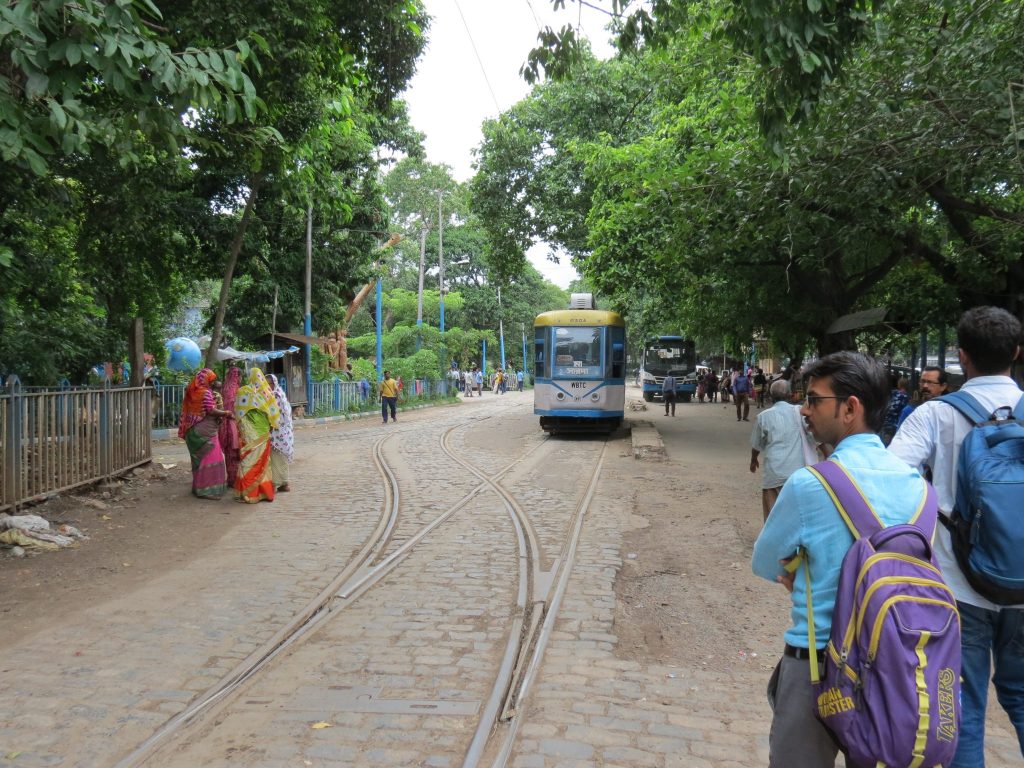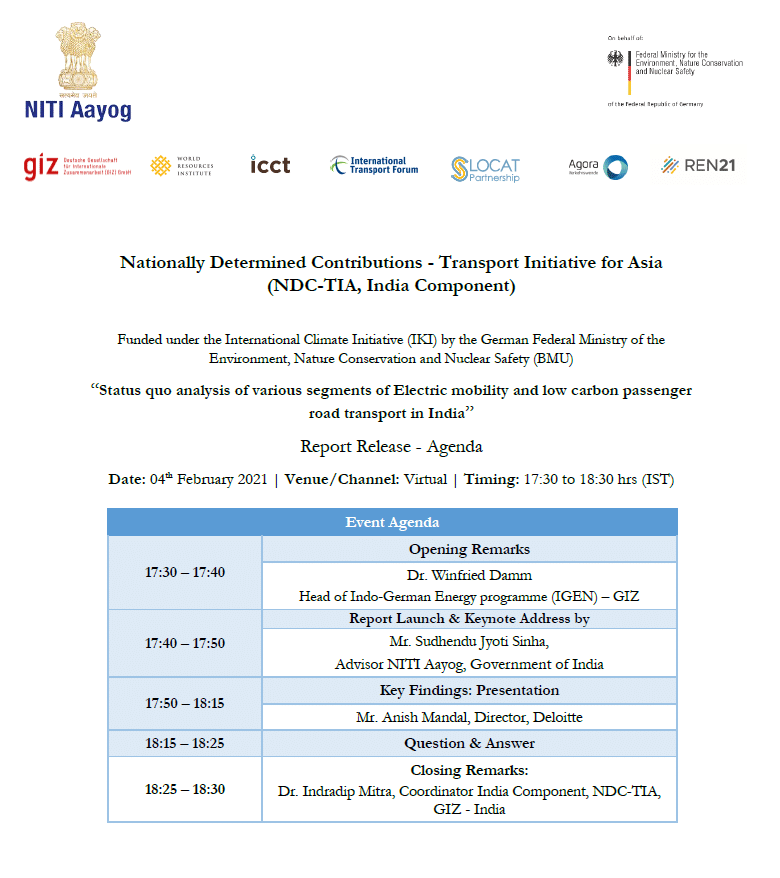
With almost 5.9 Million km, India has the second largest road network in the world. It caters to 90% of India’s total passenger traffic and towards 64.5% of the country’s overall goods movement. Decarbonising road transport is thus a lever for the transformation of the Indian transport sector.
To identify the status quo, opportunities, challenges, gaps, and way forward for low carbon road transport in India, the NDC-TIA project came up with a study to examine the Low-Carbon Road Transport (LCRT)/E- mobility development.
The study explored the overall status of LCRT in India such as
It assessed different types and technologies, services, business models, standards, protocols, contribution in India’s long-term NDCs and other climate action and clean energy targets for various segments of low carbon road transport including electric mobility.
Special focus was given to electric mobility sector for fulfilling the objective. It also distinguished the present clean-mobility landscape, critical challenges, emergent technology research advancement that are on the way of LCRT/ E-mobility systems electrification.
The findings from this report titled “Status quo analysis of various segments of Electric mobility and low carbon passenger road transport in India” could enable policymakers, regulators, services, business models, and hence the Government of India to assess the need of actions, reform, and amendments required to increase the market uptake of LCRT/E-mobility in India.
Join the Launch and get more insights into the key findings of the report!
Launch date of the report: 4th February 2021 (Thursday) from 5:30 – 6:30 pm (IST)/ 12:00 – 01:00pm (UCT).
Click here to join the e-launch event!

Find a short description of the study and the agenda here.
Tutorial on how to join
On behalf of the German Federal Ministry for the Environment, Nature Conservation and Nuclear Safety (BMU), the Nationally Determined Contribution-Transport Initiative for Asia (NDC-TIA) is a joint project of seven organisations and with the engagement of China, India, and Vietnam. It aims at promoting a comprehensive approach on decarbonising transport i.e. a coherent strategy of effective policies that are coordinated among various sector ministries, civil society, and the private sector. The overall aim of the project, which is being implemented by the consortium of seven organisations together to support countries in facilitating and informing these stakeholder processes and in developing selected climate actions. This enables partners to make a sectoral contribution towards achieving their NDCs and increase ambition in transport sections of long-term strategies and 2025 NDCs.
 ©GIZ/SahanaL
©GIZ/SahanaL
Sahana L